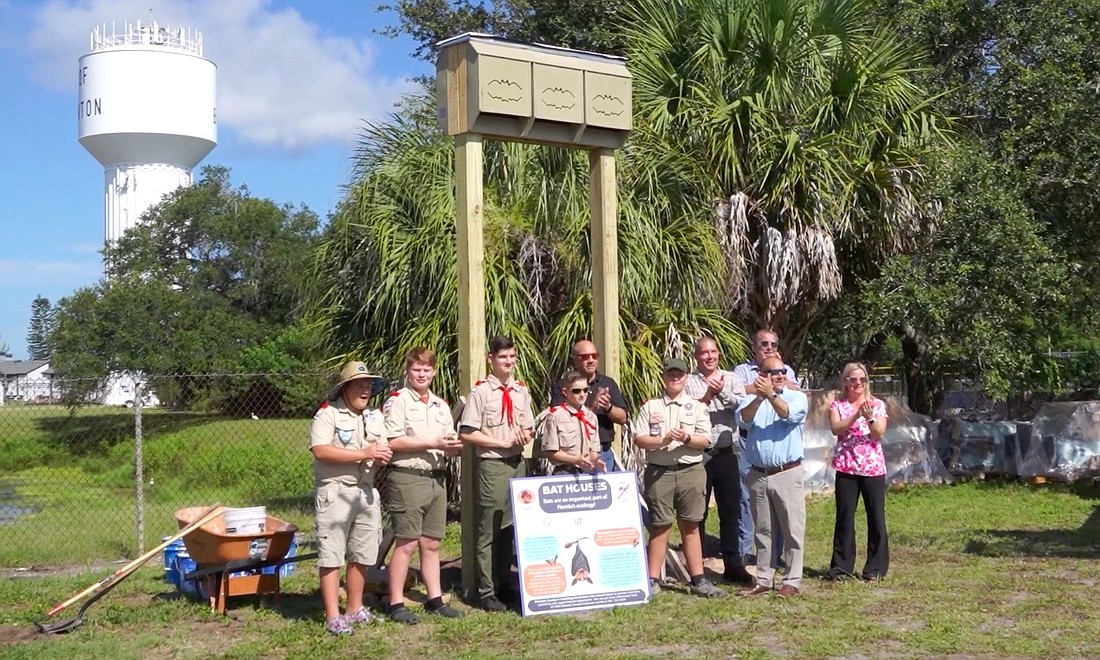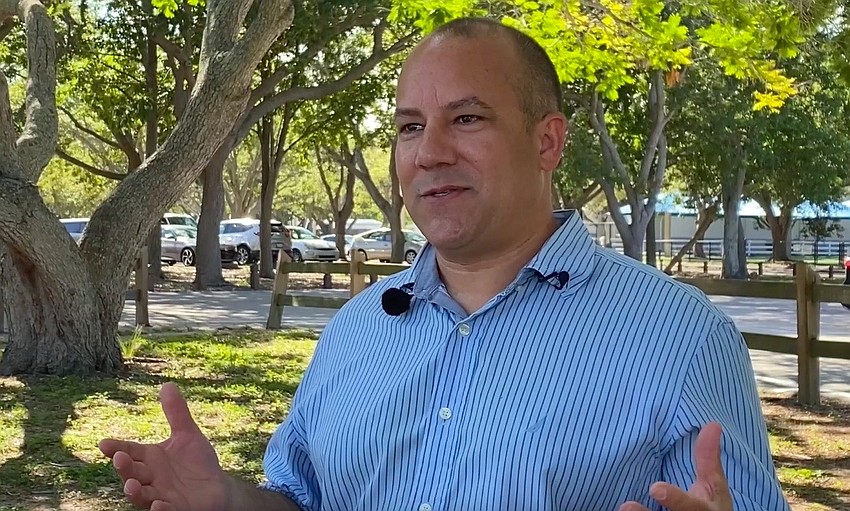- July 11, 2025
-
-
Loading

Loading

Standing beneath thousands of bats flying overhead isn’t as scary as it might seem, and it's even considered entertainment on the University of Florida campus.
Now, the live show is coming to Manatee County on a smaller scale.
The bat houses at UF are home to about 500,000 bats. A new bat house installed at G.T. Bray Park in West Bradenton will hold up to 3,000, but experts say that will go along way in terms of pest control in Manatee County.
Manatee County Project Manager Aaron Rawley said one bat eats between 1,000 and 4,000 insects a night, according to their body weight. Bats also help to fertilize the ground, spread seeds and pollinate plants.
Boy Scouts from Troop 146 in Parrish, Cub Scouts from Pack 146 in Parrish, and Boy Scouts from Pack 125 in Lakewood Ranch helped build and install the bat house and an osprey tower at G.T Bray. Manatee County said in a press release that the initial project only included parks in District 3 but will now expand to parks county-wide.
With four cases of malaria reported in Sarasota County in June and July, the bat house unexpectedly came to fruition when residents' concerns about mosquitoes became more serious than scratching bug bites.
“Our mosquito patrol has done a great job creating a firewall along the southern border of Manatee County. They stepped up fumigation and treatment to make sure the mosquitos with malaria are not making their way north into Manatee County,” Manatee County Commission Chair Kevin Van Ostenbridge said. “This idea came about months ago, long before the malaria concerns, but I’m sure mosquito control isn’t going to complain about a few extra thousand bats flying around gobbling up mosquitos.”

In addition, ospreys help control the fish population, but Van Ostenbridge’s initial concept was to simply provide more opportunities for park visitors to see some of Florida’s “pretty unique” wildlife.
Inspiration for the project came from the UF bat houses, which are the largest occupied bat houses in the world and have become a tourist attraction. People line up each night before sunset to see the bats emerge.
When they do, it’s both chaotic and mesmerizing. With hundreds of thousands of bats soaring out at once, it’s as if the sky darkens until they disperse. UF estimates their colony of bats eat 2.5 billion insects each night. That weighs out to over 2,500 pounds.
It could take a few years for the bats to find their new home at G.T. Bray, but given the right location and temperature, they will.
Better the bats find themselves a nice home in the park versus an attic. Bats are not as dangerous to humans as myths and movies make them out to be, but they're still not the ideal house guest because of their guano (droppings).
The Florida Fish and Wildlife Conservation Commission said the threat of contracting rabies from a bat is low, regardless, they should not be handled. A bat that’s not flying is usually sick.
The danger from guano comes from Histoplasma capsulatum, a fungus that can form and cause lung infections when the spores are inhaled. But again, cases are uncommon and the FWC says most infections resolve within a month without treatment.
They might be creepy, but bats do more good than they do harm.
It’s illegal to kill bats in Florida. In particular, the Florida bonneted bat is on the federal list of endangered species. Penalties range from a $100 to $1,000 fine and up to six months imprisonment, depending on the number of convictions.
The only way to remove bats from a building is to exclude them, meaning they can fly out but are blocked from returning. Exclusions are prohibited from April 16 through Aug. 14 because it’s maternity season, and pups (baby bats) don’t fly for three weeks.